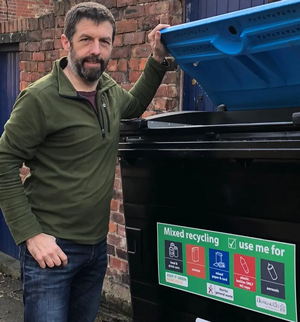Opposition slams Newcastle Council's long-term commitment to second-worst waste management option

Newcastle Liberal Democrats Opposition councillors have reacted with alarm to the Council's announcement that, with other North East authorities, they plan to plough £2.1bn into an Energy-from-Waste facility in the Tees Valley. Whilst so-called Energy Recovery Facilities (ERFs) are viewed as a preferable mechanism for waste management compared to landfill, they do not compare to reuse or recycling as effective ways to deal with waste.
The Council's own figures indicate that an increasing proportion of the City's waste is "recovered"- often meaning it is sent to an ERF- whilst recycling rates have remained relatively static since 2011/12. Investing billions in the new facility and committing more waste to ERFs makes it unclear how the Council intends to reach its 50% recycling rate for household waste this year (as per the Waste Strategy), or the even more challenging 65% recycling rate by 2035.
Cllr Gareth Kane, Opposition Environment Spokesperson, said: "It's not clear how this announcement fits within the context of the Council's Waste Strategy. The problem with building a new facility is that it will lock the city into sending waste for incineration for decades, making it difficult to exploit greener opportunities as they emerge. When the Lib Dems ran the Council, we got the recycling rate to quadruple, but we were limited on what we could do by long term contracts signed by the previous Labour administration. It looks like Labour might be making the same mistake again."
